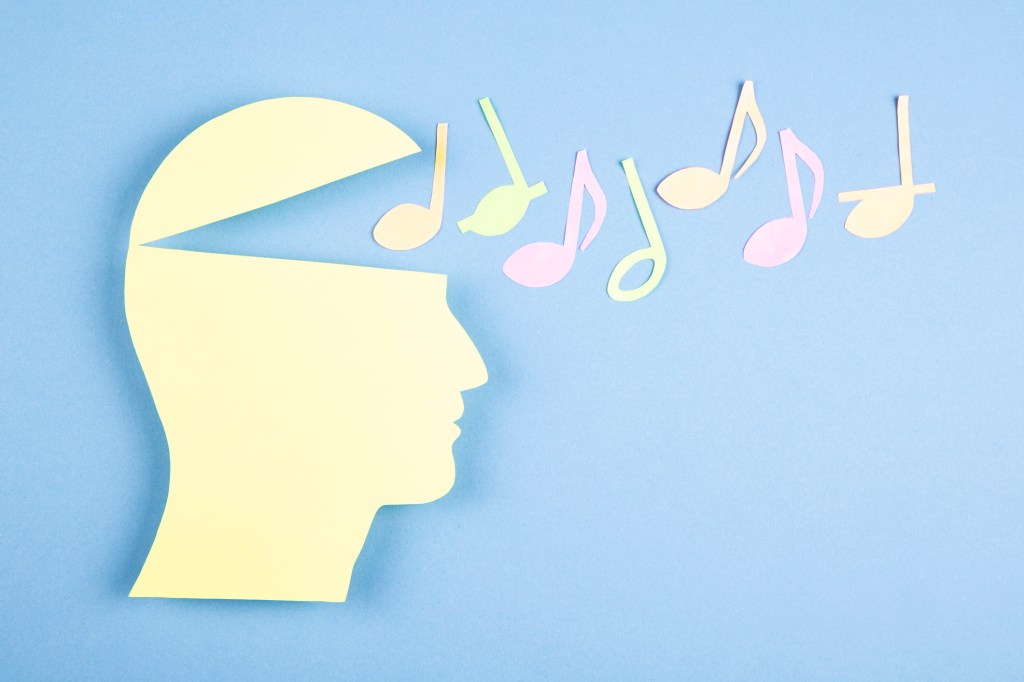Singing is one of those rare activities that don’t require talent to be enjoyable — those of us who can’t carry a tune often have just as much fun as professional crooners. If you need proof, drop it on a karaoke night at your local bar. Partaking in song is one of the great joys of being human, and there’s plenty of research behind that.
“For millennia, humans have used song to soothe, grieve, celebrate, and connect. It’s one of our oldest forms of communication,” Elisha Ellis Madsen, board-certified music therapist and master of social work candidate, told Nice News. “Now, science is catching up. Physiologically, singing regulates the nervous system through rhythmic breathing and vibration, which calm the body whether or not it ‘sounds good.’ Emotionally, it reawakens our capacity for play and self-expression — things many adults have lost touch with.”
In addition to those boons, there are myriad other mental and physical benefits of channeling your inner rock star (beyond just livening up long road trips). In fact, these benefits are impactful enough for us to make the case that you should be singing much more than you currently do … unless you’re someone who already turns every third thought into a melody. In that case, congrats on taking care of your health!
Keep reading for a rundown of singing’s unexpected upsides.
The Benefits of Singing
Reduces Stress
You may be well aware that singing “just feels good” — and here’s the likely explanation for that: According to research, we’re actually reducing cortisol when we sing, which in turn reduces stress.
In a 2016 study of cancer patients and their caregivers, researchers found that singing decreased cortisol in both groups. Likewise, a 2021 study found that belting out tunes dropped cortisol levels in both solo and group singers.

That said, another study of professional singers found that while low-stakes singing (i.e., not in front of an audience) did reduce cortisol and stress, those levels actually increased when participants were put in a “high-stress” singing situation (a public performance). So if you’re someone who balks at singing in front of others, perhaps stick to shower solos for the stress-busting benefits.
RELATED: New “Beautiful Ballad” Version of a Whitney Houston Hit Features Her Original Vocals: Listen
In general, though, the tension-relieving power of singing is well-established. “Singing is one of the most accessible forms of stress relief we have,” said Madsen. “It slows the breath, steadies the nervous system, and strengthens both body and brain.”
Boosts Cognitive Health
This one might surprise you, but according to several studies, singing may be a great way to boost cognitive function. A paper published this past September found that “lifetime duration of choir singing was associated with enhanced episodic memory and verbal fluency,” and a 2021 cross-sectional study found that “choir singers performed better than controls on the verbal flexibility domain of executive function.”

“Neurologically, research shows that singing lights up multiple areas of the brain — language, memory, motor, and emotion,” explained Madsen, “which helps preserve cognitive flexibility and protect against cognitive decline.”
A 2025 literature review that assessed the impact of singing on cognitive health in aging adults concluded that “as a low-cost, scalable intervention, singing holds promise for addressing cognitive and emotional challenges associated with aging, offering an accessible avenue to support healthy aging and enhance quality of life across diverse populations.”
Improves Respiratory Function
When you take a deep breath and let it out by singing, you’re actually improving your respiratory function, research suggests. A 2016 study found that the average lung capacity of university choir participants was higher than that of non-choir students, and a 2021 review determined that, while more research is needed, “there is a good theoretical rationale to support the therapeutic use of singing for people with COPD [chronic obstructive pulmonary disease] as a method of improving physiological parameters and breath control.”
Stimulates the Immune Response

In the 2016 study of cancer patients and their caregivers, group singing was also associated with an increase in the activity of cytokines — proteins that assist the immune system in defending against disease. The authors posited that this could be related to the decrease in cortisol, though they noted it was impossible to determine causality over correlation.
Facilitates Social Bonding
One of the more well-documented benefits of singing is its ability to foster social bonding. At least two studies have found that crooning alongside others raised levels of oxytocin — including this 2025 paper. Additionally, a 2012 study determined that social connectedness was one of the positive outcomes of a choir singing program for adults living with chronic mental illness or disability.
And research from 2015 that evaluated adult education participants in singing and non-singing classes found that those in the former felt connected to each other faster than those in the latter. This was dubbed “the icebreaker effect” (and has us wondering if singalongs would be a better idea for warming up at work retreats than sharing fun facts about ourselves).

Madsen has observed these advantages in her music therapy practice as well. “In group settings, I see what researchers call the ‘social equalizer’ effect,” she said. “Singing together creates belonging, empathy, and shared joy. That’s part of why it’s so healing.”
Make Music Your Mission
In conclusion, regardless of how talented (or tone-deaf) you are, expressing yourself through song should be a self-care priority. And there are plenty of opportunities to partake — you just have to seek them out. You can begin by searching for community choirs in your area, checking in for opportunities at your church or temple, or even starting your own singing group with friends. Music is a free, accessible way to improve your mental and physical well-being.
There are also less tangible but perhaps even more profound rewards. Just ask a music therapist: “In a world where isolation is rising and technology often replaces real connection, singing helps us return to our roots,” said Madsen. “It’s creative, embodied, and communal. It’s a simple way to feel human again.”
Ready to burst into song right now? Check out Billboard’s list of the 100 greatest karaoke songs for some inspiration.











